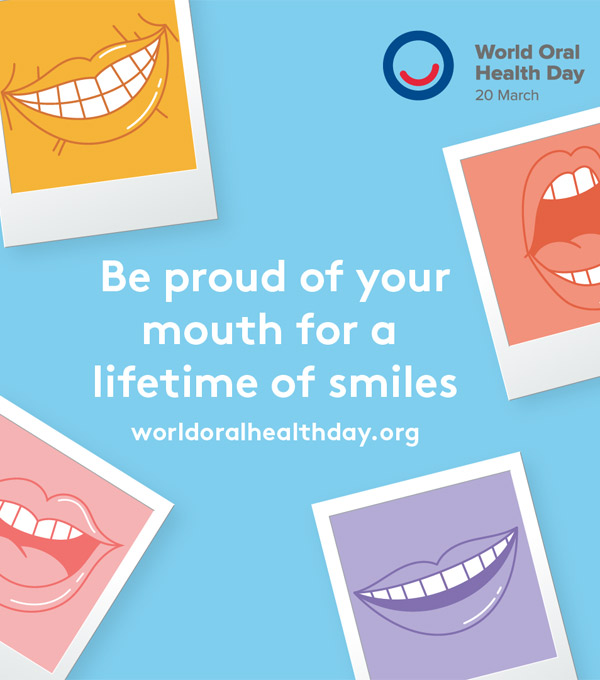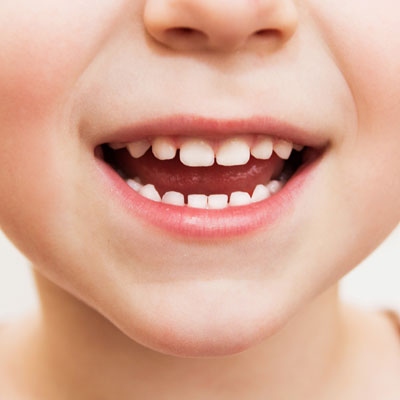 On 20 March, it’s World Oral Health Day and the perfect opportunity for us to spread the word about the importance of practicing good habits, no matter what your stage of life, as it helps preserve a lifetime of smiles.
On 20 March, it’s World Oral Health Day and the perfect opportunity for us to spread the word about the importance of practicing good habits, no matter what your stage of life, as it helps preserve a lifetime of smiles.
Good oral health is important because:
- Oral health is connected to our whole-body health. This is known as the oral Systemic Connection
- Good oral health reduces the deterioration of our mouths’ hard tissues (teeth) and soft tissues (gums, tongue and mucosa), by preventing cavities, gum disease
- Good oral health prevents bad breath (and the health and social implications)
- Good oral health prevents tooth loss
- Oral health promotes confidence and a desire to smile
Tooth Decay:
- The good news, tooth decay is preventable!
- Through good oral health practices, such as brushing and flossing regularly, we can help prevent tooth decay. Tooth decay is caused by the build-up of plaque and its bi-products, which can be removed through regular oral hygiene practices
- Tooth decay is painful
Gum Disease:
- Like tooth decay, gum disease is mostly preventable!
- Gum disease can lead to tooth loss if left untreated. Good oral hygiene practices can help prevent gum disease by removing plaque and bacteria from the gums
- The first signs of gum disease are red, swollen and/or bleeding gums.
Maintaining Overall Health:
- Poor oral health is linked to a number of health problems, including heart disease, arthritis, cardiac disease, stroke, and diabetes (to name just a few). Taking care of your oral health can help maintain your overall health
 Promoting Confidence:
Promoting Confidence:
- A healthy smile can boost confidence and self-esteem. Good oral health practices, such as regular brushing and flossing, can help keep your teeth and gums healthy, your breath fresh and your smile looking great.
So, what are good oral health practices?
Brush twice a day:
- Brushing your teeth twice a day with a fluoride toothpaste can help remove plaque, prevent cavities and keep your teeth healthy. Make sure to use a soft-bristled brush and brush for at least two minutes each time
Floss daily:
- Flossing helps remove plaque and food particles from between your teeth and along the gumline, where your toothbrush can’t reach. Make sure to use a gentle flossing technique to avoid injuring your gums
Eat a balanced diet:
- Eating a balanced diet that’s low in sugar and high in nutrients can help keep your teeth healthy. Try to avoid sugary and acidic foods and drinks, which can contribute to tooth decay
Visit your oral healthcare provider at Caulfield Park Dentists regularly:
- Regular dental check-ups and cleanings can help prevent and detect oral health problems early on. Your practitioner can also provide advice on how to maintain good oral health and treat any problems that arise
Avoid smoking or use of tobacco products:
- Smoking and using tobacco products can lead to a range of oral health problems, including gum disease, tooth loss, and oral cancer. If you use tobacco products, talk to your doctor and dental practitioner about quitting
Limit Sugary and Acidic Foods:
- Sugary and acidic foods and drinks can erode tooth enamel, leading to cavities and sensitive teeth. Try to limit your child’s intake of sugary and acidic foods, and offer them water or milk instead of sugary drinks
Mouth Guards are critical:
- They reduce trauma to teeth and also reduce the risks of concussion

Top tips especially for Children
Start Brushing Early: Start brushing your child’s teeth as soon as they appear, usually around six months. Use a soft-bristled toothbrush and a pea size amount of fluoride toothpaste Supervise Brushing:
- Children should be supervised when brushing their teeth until they are at least eight years old. Encourage them to brush all surfaces of their teeth and gums and make sure they spit out the toothpaste instead of swallowing it
- Children should see a dentist for their first check-up before their first birthday
Things to remember:
- Prevention is always the best option!
- Mouth guards are critical
- Regular dental check-ups can help prevent problems early, before they become more serious
- “Older adults with tooth loss have a higher risk of cognitive impairment and dementia, with increasing risk with each missing tooth
We would love all of our patients to feel #MouthProud so we encourage you to book in a checkup if you’re overdue or have any concerns. Call (03) 9523 9058 to schedule an appointment today.
Credible Links: CPD Dental Decay self-assessment (Caulfield Park Dentists) CPD Periodontal disease self-assessment (Caulfield Park Dentists) Oral Health Fast Facts (Centers for Disease Control and Prevention) Tooth loss in older adults linked to higher risk of dementia. (National Institute of aging) Children’s Dental care (Royal Children’s Hospital Melbourne)
